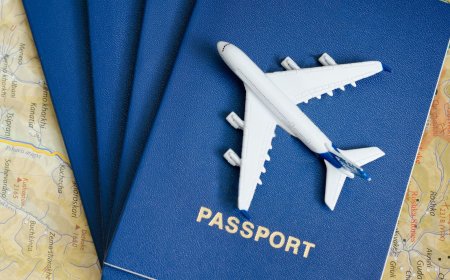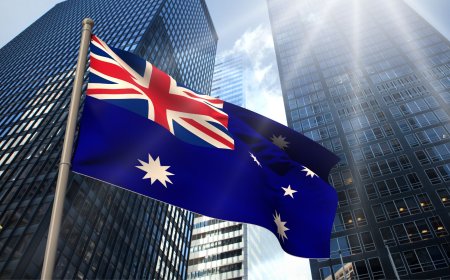Australia's Tough New Migration Laws Could Tear Families Apart
Australia's new migration laws expand deportation powers, impose travel bans, and increase surveillance, sparking concerns over human rights and family separation.

The Australian government's recent push for sweeping changes to migration laws has sparked widespread concern, with critics describing the reforms as "brutal" and potentially harmful to thousands of families. Labor, in partnership with the Coalition, has secured an agreement to introduce a trio of bills aimed at expanding deportation powers, tightening surveillance, and imposing stricter travel bans. These changes, which will soon face a vote in the Senate, are seen by many as rushed and overly punitive.
1. Deporting Non-Citizens to Third Countries
The Migration Bill is the first of the three major reforms, which aims to enhance the government's authority to deport non-citizens to third countries, including those with questionable human rights records. Under the new law, Australia could negotiate with foreign nations, paying them to accept deportees—potentially exposing these individuals to dangerous conditions in countries they fled from.
There are concerns that this measure could affect as many as 80,000 individuals, including those on bridging visas or in immigration detention. The bill allows the government to reimpose monitoring conditions on people deemed a threat to the community, while also providing legal immunity for decisions related to deportation, even if those decisions are later found to be negligent.
2. Expanding the Minister’s Powers to Enforce Deportation
The second key reform gives the Immigration Minister the power to order non-citizens to take certain actions or face deportation. Under the Removals Amendment, if a non-citizen fails to comply with a deportation order, they could face up to five years in prison.
Additionally, the bill permits the government to designate "removal concern countries," effectively imposing travel bans on entire populations from those regions. Critics fear that this will disproportionately affect migrant communities, leading to discrimination and separating families.
3. Increased Surveillance and Confiscation of Personal Items
The Prohibited Items Bill introduces measures to increase surveillance within immigration detention facilities, including the confiscation of mobile phones. This move is justified by the government as necessary to prevent criminal activities, such as drug trafficking, within detention centers. However, advocates argue that this could limit detainees' ability to document their conditions or communicate with their legal representatives and families.
The bill does include a provision ensuring detainees are given alternative means to contact legal advisors or family, but critics remain wary of the broader implications for privacy and civil liberties.
4. Growing Criticism and Human Rights Concerns
Human rights organizations have strongly condemned the proposed laws, warning that they could have devastating effects on vulnerable groups. Many fear the legislation will lead to the separation of families, as non-citizens face forced deportation to countries where they may face persecution.
One prominent critique highlights the lack of transparency surrounding the countries that could be targeted for deportation. The uncertainty surrounding which nations will be considered "removal concern countries" adds to the fear of arbitrary and unfair treatment.
5. Political Negotiations and Future Outlook
The reforms are expected to pass through the Senate with the Coalition's support, though not without some amendments. The Coalition has secured commitments from the government to specify the reasons for designating removal countries and to review their status every three years. Despite these changes, opposition members have expressed concern about the potential for these laws to violate human rights.
The Greens have also voiced strong opposition, calling the bills among the most extreme migration laws seen in recent decades. Critics argue that these laws could pave the way for agreements with countries that have poor human rights records, further undermining Australia's commitment to international refugee protections.
A Shift in Australia's Migration Policy
As the government pushes forward with these reforms, it is clear that the new migration laws will be a defining issue in Australian politics. While the bills are positioned as a necessary step for enhancing national security, the consequences for non-citizens, refugees, and migrant families are raising serious ethical and legal questions. The debate is far from over, and the full impact of these changes will only become clear once they are implemented.
What's Your Reaction?
 Like
0
Like
0
 Dislike
0
Dislike
0
 Love
0
Love
0
 Funny
0
Funny
0
 Angry
0
Angry
0
 Sad
0
Sad
0
 Wow
0
Wow
0









































































































